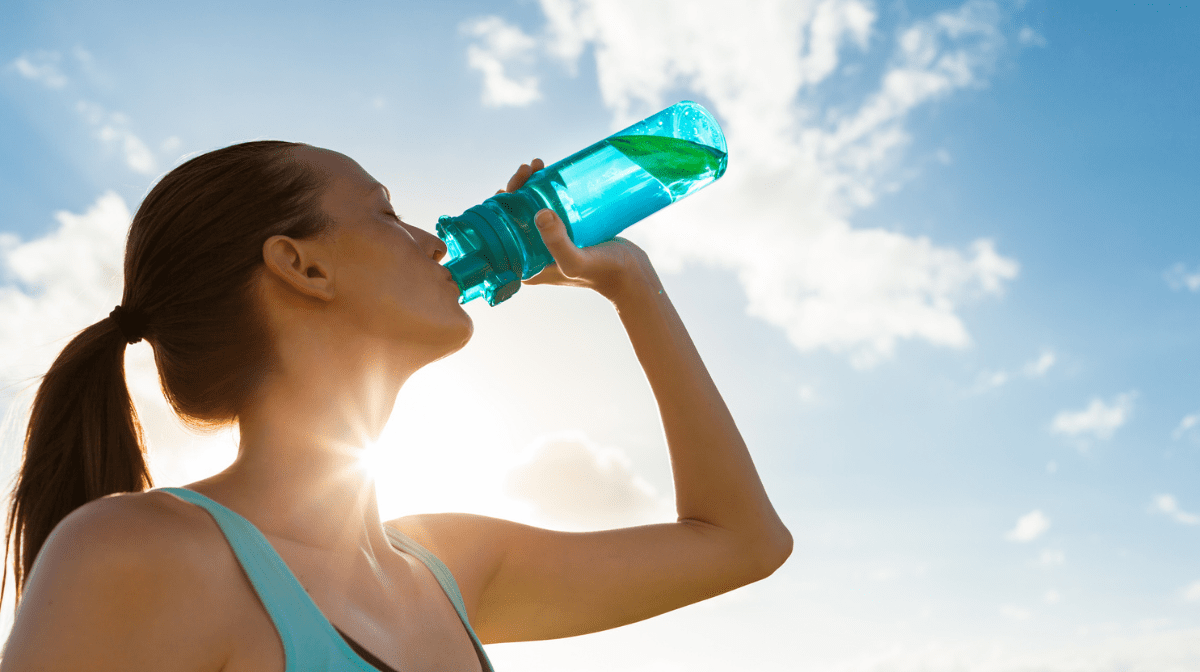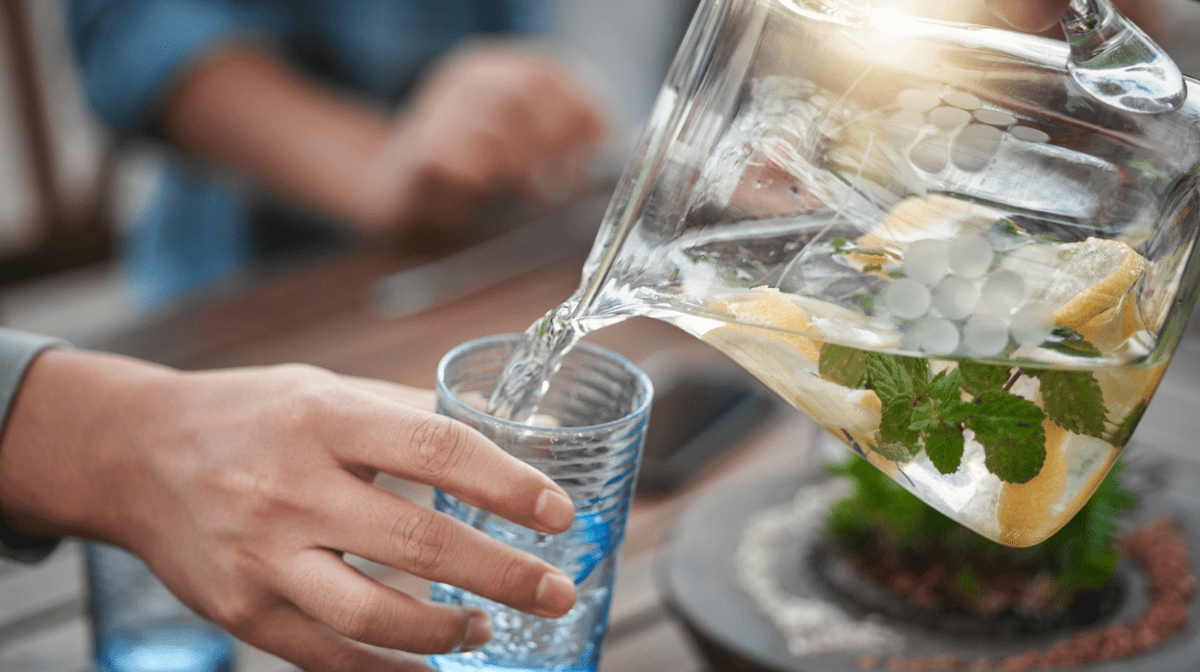
Water makes up two-thirds of our body, and supports many crucial bodily functions, such as delivering oxygen throughout the body, regulating body temperature, and promoting healthy skin.
So, if you're asking yourself 'how much water should I drink a day?', we've got all the tips you need to help your body perform at its best. Discover everything you need to know on our blog.
How Much Water Should I Drink a Day?
The NHS Eatwell Guide suggests drinking six to eight glasses of water a day, which is equivalent to around 1.5-2 litres to promote optimal health. If you don't like the taste of plain water, here are some alternatives to supplement your liquid intake:
Tea or fruit tea
Coffee
Sparkling water
Semi-skimmed milk
Fresh fruit juice
Benefits of Drinking Water
Water is a healthy and accessible choice for quenching your thirst at any time. It has no calories and contains no sugar. It's also a key part of a healthy diet, as drinking more water can bring various health benefits, including:
Supporting optimal physical performance - if you exercise intensely and tend to sweat, drinking water and keeping yourself hydrated can help your body to perform at its best.
Reducing fatigue - the primary symptom of dehydration is exhaustion and anxiety. A tall glass of water keeps you hydrated while keeping your stress level in check.
Helping to maintain healthy skin - studies have suggested that drinking water can support the hydration of your skin, providing barrier and skin conditions, such as roughness and dryness.
Aiding weight loss - water helps to increase feelings of fullness and boost your metabolic rate.
How to Stay Hydrated?
The key to maintaining optimal hydration levels is to drink regularly throughout the day. But, if the weather is particularly hot or you've been breaking a sweat, you'd need an efficient option to boost your hydration levels and compensate for the loss.
The range of Nuun Sport Electrolyte Tablets could be the helping hand you need. These tablets feature the essential minerals and electrolytes you need to stay hydrated.
What are the Symptoms of Dehydration
Dehydration occurs when your body loses more liquids than you take in and doesn't have enough to support its normal function. If you're dehydrated, you might experience discomforts, such as:
Feeling thirsty
Sunken eyes
Feeling fatigued, dizzy or lightheaded
A dry mouth, lips and tongue
Dark yellow, strong-smelling urine
These are the signals that your body sends to raise your attention on your liquid intake. If you have these symptoms, you should drink water or other liquids to boost your hydration levels.
What Happens If You Drink Too Much Water?
Water plays a pivotal role in supporting vital bodily functions. However, drinking too much water in a short period could lead to a serious health problem called overhydration or water poisoning. Overhydration could be dangerous and causes unbalanced electrolyte levels and swollen cells, which may result in symptoms, such as:
Headaches
Distention
Nausea or vomiting
Discolouation of the hands, feet, and lips
Weak muscles that cramp easily
This is why it's essential to be mindful of your water intake - stick to the recommended six to eight glasses a day to reap the benefits of drinking water.
Staying hydrated helps to regulate your electrolyte levels. Discover everything you need to know about what electrolytes are and how they support your optimal health on our blog:

What are Electrolytes: Uses and Benefits
What do electrolytes do, and what are the benefits of electrolytes? Explore the ultimate lowdown!









